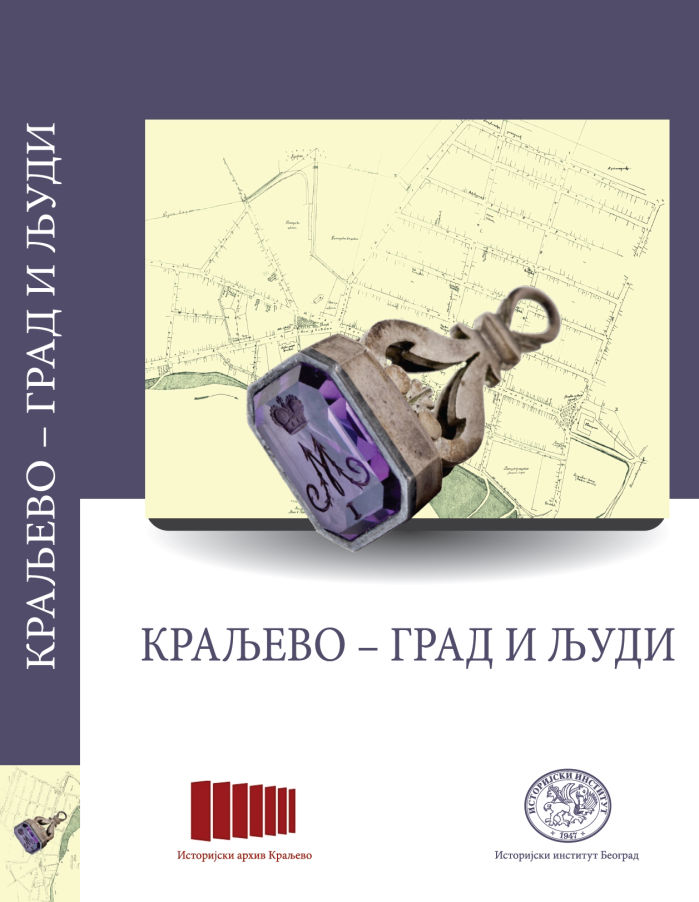>>> download article (.pdf)
DOI: 10.34298/9788677431488183
UDC: 327(44:497.11)“1878/1882“
pp. 183–210
language: serbian
Biljana Stojić
FRENCH POLICY TOWARDS SERBIA IN THE PERIOD OF THE CONGRESS OF BERLIN UNTIL THE PROCLAMATION OF THE KINGDOM OF SERBIA IN 1882
Summary
The paper focuses on the policy of the young French Republic regarding Serbia in the period from the Congress of Berlin of 1878 until the proclamation of the Kingdom of Serbia in 1882. Although considered one of the Great Powers, in the late 1870s and 1880s, France still suffered from the consequences of the terrible defeat from Prussia. The defeat caused the fall of the Second French Empire and political isolation of the Third Republic. The young Republic was pushed aside during the Congress of Berlin. France was not consulted about any important question discussed in Berlin. Its isolated position within the Concert of Europe greatly affected its diplomatic relations with countries that had recently become independent – Serbia, Romania, and Montenegro. Nonetheless, France was highly interested in new markets and products offered by new members of the European family, but due to aggressive Austro-German policy, it was forced to remain inactive. Regarding Serbia, the situation slightly changed with the appearance of the General Union, a financial consortium with dominant French capital and a leading investor in railways in Serbia. Though aware that the General Union and its director Paul Eugène Bontoux were strongly supported by the Austrian government, France saw many benefits from the Union’s successful operation in Serbia. As written by French minister, Count Jules Paul Cancleux, the General Union in Serbia was open to other French investors, with France being able to reap the benefits as it could spread its political, economic and cultural influence in this yet unknown part of Europe. Even though the General Union was seen as a partly French consortium, France was not affected by its collapse which occurred in January 1882. Regarding Serbia, seen from France’s perspective it was just a minor step back, while in France the Republican majority got the opportunity to deal once and for all with the Monarchists and their supporters within the ranks of the General Union. Preoccupied with its interior affairs, the French Republicans directed Mijatović, the Minister of Foreign Affairs, to seek salvation in Vienna and not in Paris. Over the following few months, France was preoccupied with its interior political situation, neglecting even Serbia’s elevation to the kingdom. Serbian minister in Paris Jovan Marinović was deeply disappointed with the indolent attitude of French politicians regarding this important event for his country – the proclamation of the Kingdom on 6 March 1882. For that reason, France was the most vigilant among all the Great Powers and officially recognised the new Kingdom later than other Great Powers. The French attaché offered his salutation to new Serbian King Milan I on 9 March. On his behalf, King Milan decorated French President of Republic Jules Grévy with the Takovo order, thanking him for kind greetings. The French public had a similar passive reaction to the proclamation of the Serbian Kingdom. French newspapers dedicated to this event just a few short articles, mostly translated from Austrian or German papers. The joint stance was that Serbia placed itself even more in Austria’s orbit and that the act was conducted with Vienna’s approval. An entire decade elapsed before the young French Third Republic overcame its isolated position within Europe and a decade before French investors reappeared in the Serbian market as equal competitors to Austrian capital. In the long run, France played an important role in helping Serbia to suppress Austria’s strong political and economic influence. The first cornerstone of future fruitful cooperation was laid in 1883 with the conclusion of the first Serbian-French commercial agreement.
Keywords: Serbia, France, Prince Milan, Jovan Marinović, Paul Eugène Bontoux, railway convention, proclamation of the Serbian Kingdom.
